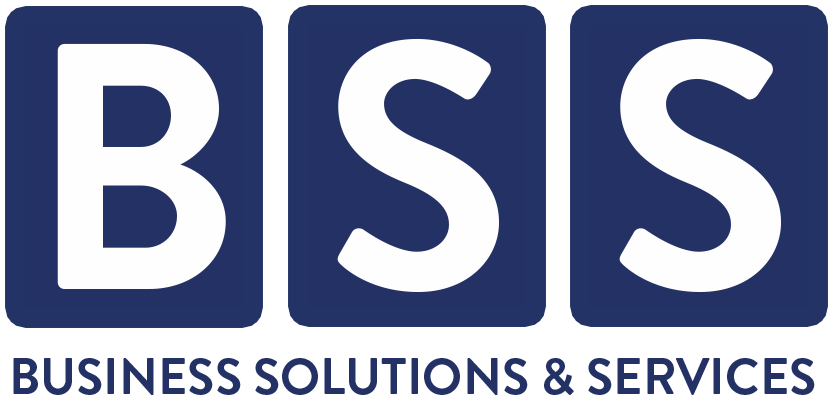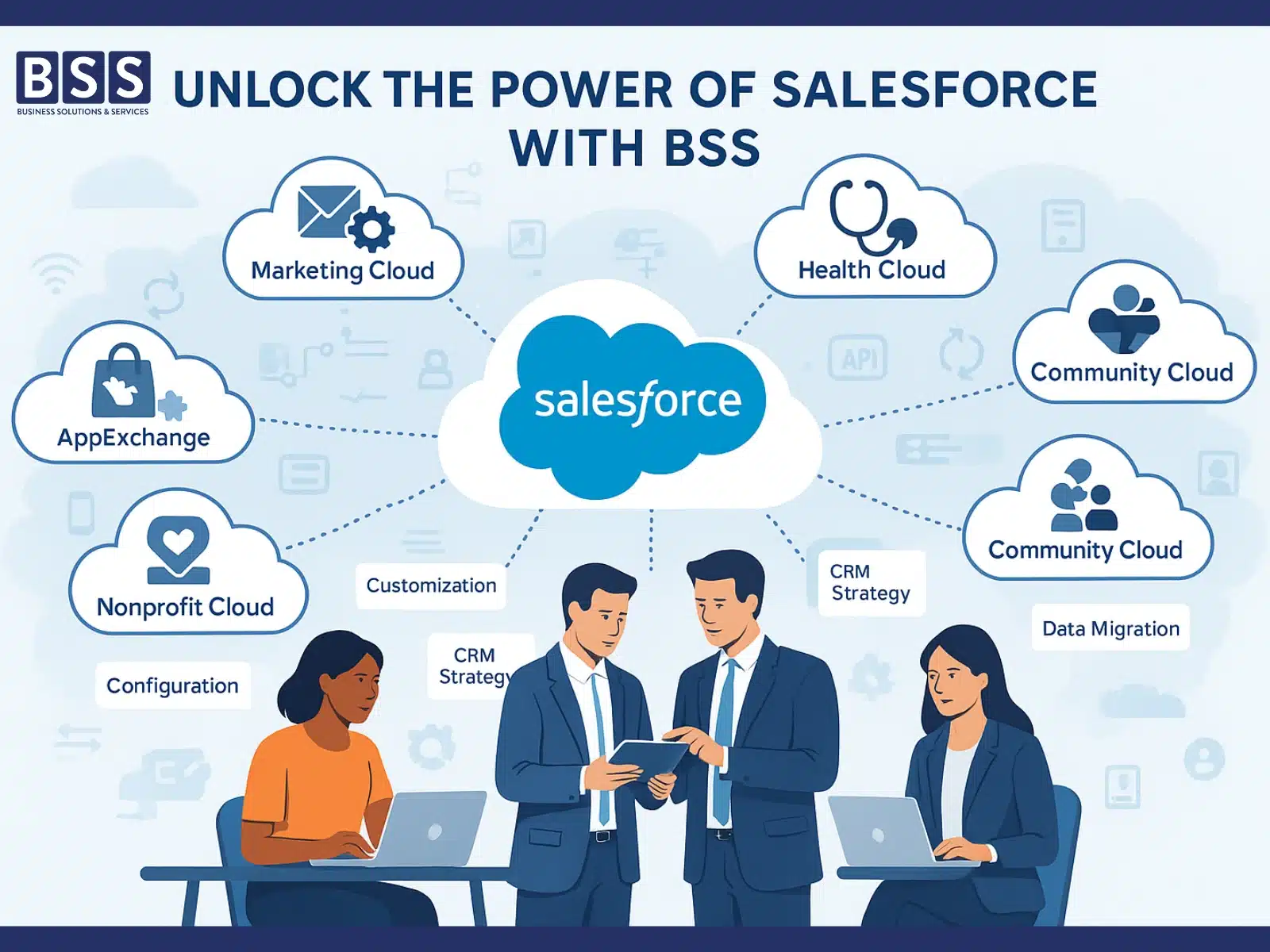In today’s digital age, businesses worldwide are turning to Salesforce CRM to supercharge customer engagement, sales, and service operations. But what is Salesforce implementation? Why does it matter? And how can software houses like BSS help with a successful rollout?
Whether you’re looking for a Salesforce implementation guide, salesforce implementation plan, or curious about salesforce life sciences CRM, this in-depth blog answers it all—designed for global audiences searching for informational, transactional, or navigational intent.
Good Salesforce implementation isn’t just technical—it’s strategic, user-centric, and built for long-term success.
What is Salesforce Implementation?
Salesforce implementation (sometimes written as salesforce implimentation, salesforce-implementation, or even salesforce implementacija) is the process of deploying and customizing the Salesforce CRM platform to fit your organization’s unique needs.
It involves:
Setting up standard Salesforce features
Customizing objects & fields
Integrating with existing systems
Training users and providing support
Done right, sales force implementation transforms business operations, improves customer satisfaction, and drives ROI.
Why Businesses Choose Salesforce CRM
- Flexible, cloud-based platform
- Wide product suite: Sales Cloud, Service Cloud, Marketing Cloud, Health Cloud, etc.
- Powerful tools like Salesforce Lightning, AppExchange, and CPQ
- Supports unique industries, including life sciences CRM, healthcare, and nonprofits
And when paired with expert salesforce implementation and customization, it delivers even more value.
Salesforce Implementation Process in (BSS) – Step-by-Step
Here’s the proven salesforce implementation strategy used by BSS to guide clients from discovery to post-launch support:
1. Discovery & Requirement Gathering
- Understand business needs (Sales, Marketing, Service, etc.)
- Conduct stakeholder interviews
- Analyze current workflows & processes
- Document functional & non-functional requirements
Deliverable: BRD (Business Requirements Document) / FSD (Functional Specification Document)
2. Solution Design & Planning
- Select suitable Salesforce edition (Sales Cloud, Service Cloud, etc.)
- Design data model: Objects, fields, relationships
- Define user roles, profiles & permissions
- Identify integration needs (ERP, email, APIs)
- Create an implementation roadmap & timeline
Deliverable: Solution Architecture Document + Project Plan
3. Salesforce Setup & Configuration
Configuration in Salesforce (also asked as what is configuration in Salesforce?) uses built-in tools to set up:
- Leads, Accounts, Contacts, Opportunities
- Custom objects & fields
- Page layouts, Record Types, Validation Rules
- Workflow & Process Builder / Flow Builder
- Enable & customize Salesforce Lightning Experience
Tools: Salesforce Setup, Object Manager, Flow Builder
4. Customization & Development (If Needed)
If out-of-the-box features aren’t enough, BSS creates top salesforce customization solutions:
- Apex Classes & Triggers for business logic
- Lightning Web Components (LWC) for rich UI
- Custom APIs & complex integrations (e.g., MuleSoft, Zapier)
- Build on the salesforce partner community implementation guide for B2B/B2C portals
5. Data Migration
- Extract data from old systems (Excel, SQL, CRM)
- Cleanse & map data to Salesforce objects
- Import using Data Loader, Import Wizard, or APIs
Deliverable: Verified, clean, uploaded data
6. Testing Phase (UAT)
- Functional testing by QA team
- User Acceptance Testing with client teams
- Bug fixes, regression testing
Tools: Salesforce Sandbox, Jira, test plans
7. User Training & Documentation
- Train Admins, Sales, Marketing, and Service teams
- Prepare manuals, video tutorials & help docs
- Deliverable: User guides + training sessions
8. Go-Live & Deployment
- Move configuration & custom code from Sandbox to Production
- Use Change Sets or CI/CD pipelines
- Final checks & smoke testing
- Deliverable: Live Salesforce CRM system!
9. Post-Go-Live Support & Maintenance
- 2–4 weeks of hypercare support
- Issue resolution & user feedback
- Continuous enhancements, performance reviews
- Tools: Salesforce Admin Console, dashboards
Additional Salesforce Implementation Guides & Resources
- salesforce implementation checklist a comprehensive guide
- salesforce lightning implementation guide
- pardot business units implementation guide
- orion salesforce implementation guide
- salesforce communities implementation guide
- salesforce com implementation
- custom saleforce implementation
- salesforce partner community implementation guide
Best Practices: Salesforce Implementation Strategy
- Define clear, measurable goals
- Engage stakeholders from day one
- Plan data migration early
- Prioritize user adoption and training
- Use phased rollouts for complex projects
Benefits of Professional Salesforce Implementation by BSS
- Faster time-to-value
- Reduced risk & fewer errors
- Scalable, future-proof architecture
- Local & global expertise
- Full salesforce implementation and customization
- BSS also offers salesforce crm, salesforce life sciences crm, and implémentateur salesforce services worldwide.
Need Industry-Specific Guidance?
- salesforce community implementation guide: Build branded communities
- salesforce marketing cloud: Automate customer journeys
- health cloud: Patient-centered healthcare solutions
- nonprofit success pack: Manage donations & donor relations
FAQs (Optimized for “People Also Ask”)
What is Salesforce implementation?
- Salesforce implementation is deploying & customizing Salesforce CRM to fit unique business needs. It includes configuration in Salesforce, customization, training, integration, and creating a Salesforce implementation strategy aligned with global or industry-specific goals like salesforce life sciences CRM.
How to implement Salesforce successfully?
- Follow a step-by-step Salesforce implementation plan: discovery, solution design, configuration in Salesforce, salesforce implementation and customization, data migration, testing, training, go-live & post-go-live support. This structured salesforce com implementation ensures ROI and user adoption.
What is configuration in Salesforce?
- Configuration in Salesforce means setting up built-in features—objects, fields, validation rules, workflows—without writing code. It speeds up salesforce implementation and customization, creating a flexible Salesforce CRM that supports business needs, from salesforce life sciences CRM to service processes.
Can Salesforce integrate with other systems?
- Yes! Salesforce offers robust APIs, AppExchange apps, and tools like MuleSoft for seamless integration in salesforce com implementation. Connect ERP, email, marketing tools, or legacy systems to create a unified Salesforce CRM experience, part of an effective Salesforce implementation strategy.
Why choose BSS for Salesforce implementation?
- BSS provides complete Salesforce implementation: strategy, configuration in Salesforce, custom code, data migration, user training & support. Whether you need a salesforce life sciences CRM or global deployment, BSS ensures your Salesforce implementation plan drives growth and customer success.
Conclusion
- Salesforce implementation is more than software setup—it’s a transformation journey. From discovery to post-go-live, BSS helps global businesses unlock the true power of Salesforce CRM through tailored solutions, expert salesforce implementation strategy, and continuous innovation.
Ready to start?
Contact BSS today and let’s build your custom salesforce implementation plan for success!

